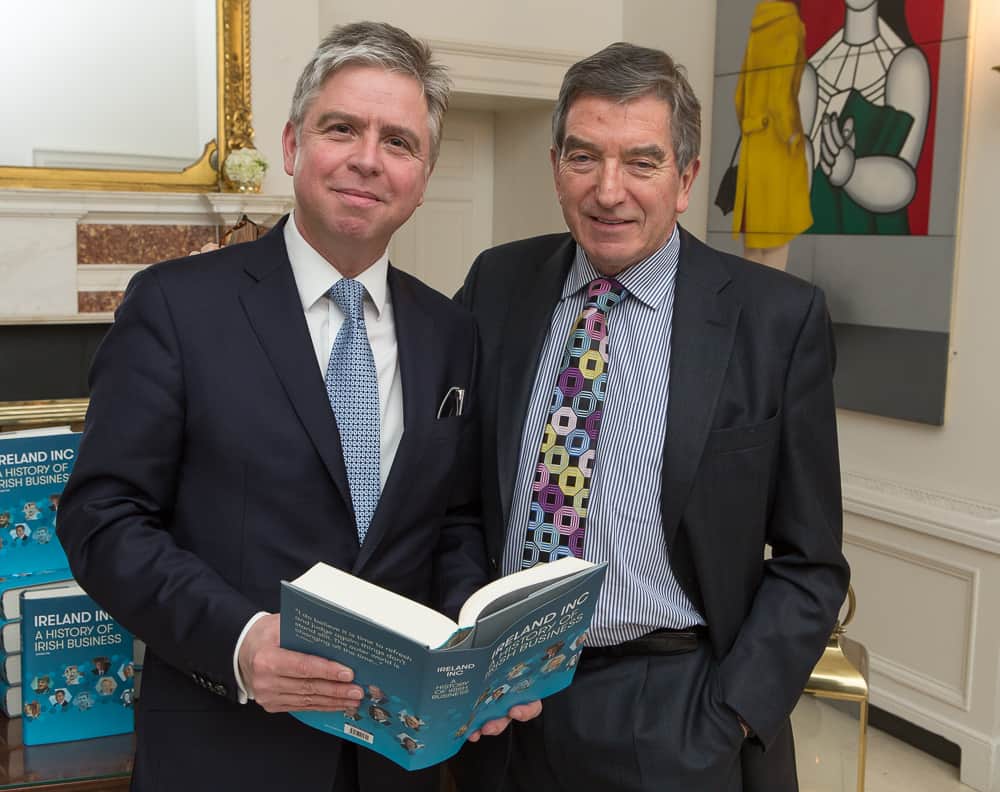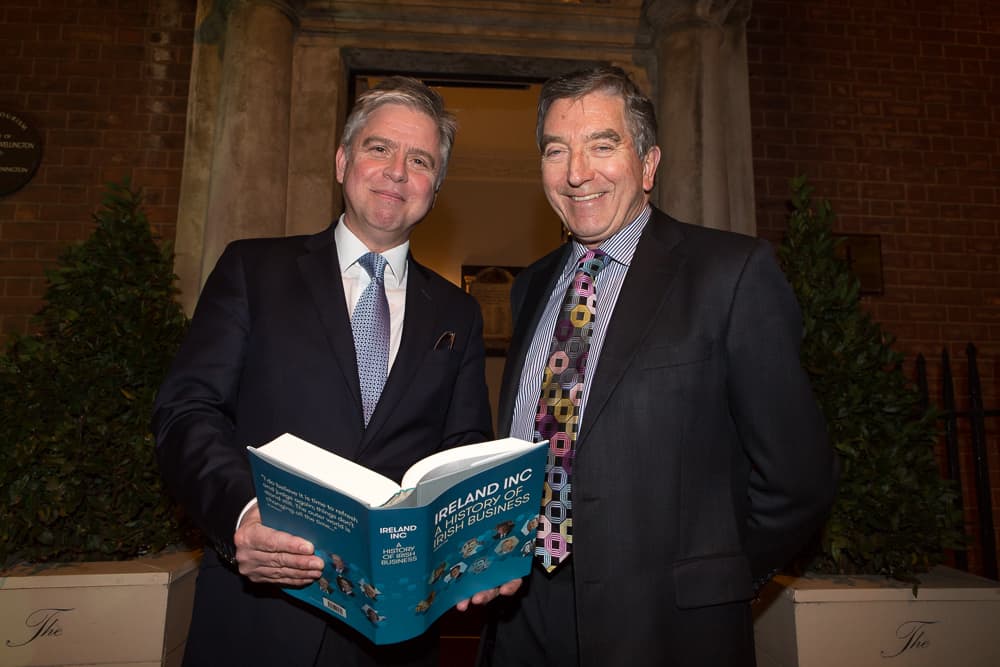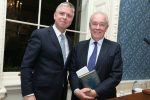Pictured: Ian Hyland, Publisher of Business & Finance and host of Principals Club, with Niall FitzGerald KBE.
Niall FitzGerald called out “a crisis of leadership” as he addressed the Principals Club dinner, in Dublin, hosted by Business & Finance.
Niall FitzGerald called out “a crisis of leadership” as he addressed the Principals Club dinner, in Dublin, hosted by Business & Finance. At the prestigious gathering of political and business leaders in Dublin’s Merrion Hotel, Mr FitzGerald, former Chief Executive Officer of Unilever PLC, was honoured for his contribution to global business.
Invited guests at the exclusive Principals Club dinner included leaders from the world of politics (Enda Kenny TD, Michael Noonan TD and Senator Michael McDowell), business (Lochlann Quinn, Terence O’Rourke, Julie Sinnamon and Breege O’Donoghue) and sport (rugby stars Keith Wood, Doug Howlett, Hugo McNeil and Fergus Slattery). Each table also hosted an MBA candidate from the Smurfit Business School, offering the business leaders of tomorrow a unique opportunity to connect with mentors and benefit from the collective wisdom in the room.
Bookended with amusing anecdotes and personal reflections, Mr FitzGerald nonetheless imparted a speech with a very serious and relevant message. In the main body of his address he claimed people worldwide have lost trust in leadership, citing a lack of trust because “Leaders do not behave in ways consistent with their own rhetoric.” His speech dealt with what he termed “Principles for Principals”, in other words how business leaders can foster trust.
He detailed how William Lever, co-founder of Unilever engaged in an early model of what we might now term CSR, with social purpose resonating throughout the business and its efforts to make improvements to the lives of its employees.
 Pictured: Ian Hyland with Niall FitzGerald, KBE. Niall is one of many iconic Irish business leaders interviewed in the book “Ireland INC: A History of Irish Business”
Pictured: Ian Hyland with Niall FitzGerald, KBE. Niall is one of many iconic Irish business leaders interviewed in the book “Ireland INC: A History of Irish Business”
Mr FitzGerald quoted William Lever, who once said: “The truest and highest form of enlightened self-interest requires that we pay the fullest regard to the interest and welfare of those around us, whose well-being we must bind up with our own and with whom we must share our prosperity.”
He continued, elaborating that Lever’s attitude was far-sighted but that globalisation is now creating greater inequalities, and an ever-widening gap between the haves and the have-nots, and called for greater regulation in order to get “business operating in a more consistently beneficial fashion”.
However, he warned, “When you have regulation, the temptation is to look at the rules and resolve to work – just – within them. It leads to a philosophy of ‘what can we get away with?’”
“Regulation cannot be a substitute for individual responsibility,” he advised. “A commitment to explicit values and transparency of performance is required.”
Ultimately, irresponsible business practices are short-termist, as Mr FitzGerald explained: “For a business to be sustainable in the long term it needs a properly functioning society around it. Intelligent business leaders realise that they share responsibility for building and maintaining that society. You cannot have a sustainably successful business in a broken society.”







